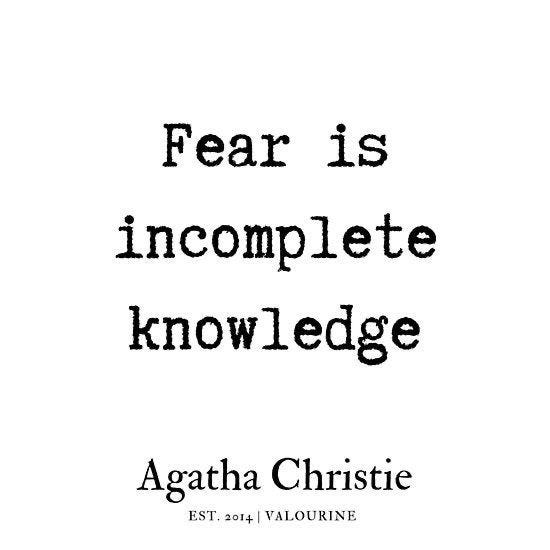The most underrated skillset is asking good questions. Few people ask any, let alone thoughtful ones. There’s several reasons to this. But I’d like to focus on fear.
(A video below discussing today’s topic if that’s your chosen medium.)
Why are people afraid to ask questions?
Attention.
This is two-fold. They don’t want to draw attention to themselves for inquiring, or they don’t want to place attention on the other party to provide the answer.
As I’ve articulated before, attention is one of the most powerful assets an individual harnesses. Politicians, companies, social media, the dating market etc. are all aware of this. And I think we take for granted how powerful our eyes are due to the constant stimulation. But it’s our focused awareness that leads to purchase power, votes and a second or third date.
But…
What about attention that’s unwanted..?
I’ll tell you.
The avoidance technique is to control the questions being asked. Or eliminate questioning altogether.
And if they can’t do that, they’ll divert your attention to a response that has nothing to do with the original inquiry.
How does one successfully deter questions?
I think the most effective strategy is emotional manipulation. And to simplify a broad topic, we’ll focus on creating fear.
Knowing what to ask isn’t the skill in itself. Emotional regulation is more than half of the battle. This is because a question in it’s own right is a challenge. Delivery and intention make it more or less palatable. But it takes wherewithal to recognize an inconsistency, question the current reality and dig deeper.
On the flip side, it takes a great deal of courage to face a question. In my opinion the extreme levels of sensitivity is due to the lack of emotional regulation in asking questions, plus heightened sensitivity in what needs to be answered.
For today’s conversation I’d like to focus on the inquirer. Here are 7 reasons why you’re scared to ask what’s on your mind.
1. You’re Wrong
Acquainting yourself with being wrong means you have to swallow your pride or reconfigure your perception. The most uncomfortable reconfiguration is one on of identity. Changing an opinion could be as far reaching as changing your reputation, social circle or life as you know it.
2. You’re Right
Not one you might expect. But some times you have a feeling about something and you hope you’re not right. Asking a question that would verify your hunch could mean facing a reality that you were hoping to avoid. Rewriting a story about someone or something that is unflattering is a challenging process.
3. Undermining Authority
This category could be seen as revolutionary, but not always. For the most part, questions in day to day life are based in curiosity or the need for elaboration. There are times when asking a question, as valid as it may be, is interpreted as threatening. Even if you are well intended and have an open mind, a question can be perceived as a challenge or critique. Tone, delivery and timing have a lot to do with how absorbable it is. But sometimes the big kahunas need to be checked and you might be the catalyst for deconstruction to create reconstruction.
4. Ignorance is Bliss
People don’t want to ask because they are in their preferred reality. Ignorance can be simple. Introducing other information would require adjustments and may complicate what’s been established (not always literally, but absolutely emotionally). Ignorance can also be a state of naivete, and asking difficult questions could prompt maturation that one isn’t ready for.
5. Keep the Peace
As an informal life-long mediator myself, I understand. Social disruption can be jarring. Especially if you find yourself in a position to manage other people’s emotions (intentionally or unintentionally). Inquiry that would rock the boat is something many think twice about. But I’d like to challenge, it’s not always about the dynamic maintaining peace, but controlling a variable to keep yourself in balance by proxy.
6. Rejection
Universal. Don’t beat yourself up on this one. Out of all 7, I connect with this the most. Rejection comes in many forms and I believe everyone is addressing it in some manner. This might be a conversation on “brining enough to the table” or if you’re a good fit. It takes a brave face to initiate someone else’s judgment. I’d say to remember it’s not a reflection of you, but simply subjective feedback in a moment of time.
7. Singled Out
A shout out to all the black sheep. Asking questions could mean you’re the odd one out. It’s not always as dramatic or public as raising your hand in a board meeting with the CEO. It could be as implicit as observing your family and asking yourself “What if I went this way instead”? A close partner with rejection, being singled out is counter-intuitive to our evolutionary psychology. But when done in a way that’s best for you, usually yields the most freedom.
Questions are important. And I think they’re vital now more than ever. In the age of information, it’s crucial to inquire about resources, intentions, data, patterns, backgrounds etc. Not only to clarify the influences around us but to continue on the path that’s best for ourselves.
So a question for you….
What prevents you from asking?
Consider donating on paypal , cashapp , or venmo (@el_eanordavid) to support my work
Review Confidence Coding, my online course coming soon
Interested in more thoughts and ideas? You can check out my Instagram






